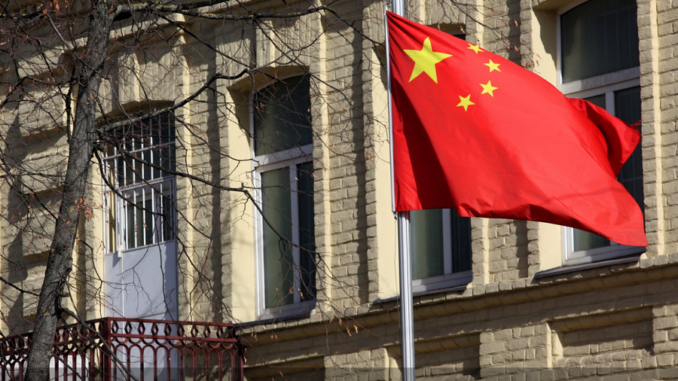
A long-standing spat between Lithuania, a small, Eastern European nation of fewer than 3 million people, and China, a superpower with an economy that could soon exceed that of the United States has attracted the world’s attention. This is already opening new grounds for Lithuania where users of https://www.bestunitedstatescasinos.com/ are from.
Lithuania, though, is believed to have thrown the first punch — twice in the space of a few months. First, it withdrew from the so-called “17+1” group, a forum in which 17 eastern and central European countries engage with China, before encouraging others to do the same. Given China’s numerous business interests in the region, most notably the so-called Belt and Road Initiative (BRI) focused on infrastructure projects, any kind of European pushback is unwelcome in Beijing.
Then in November, Lithuania became the first country in Europe to allow self-ruled Taiwan to open a de facto embassy under the name “Taiwan.” Other such offices in Europe and the United States use the name Taipei, Taiwan’s capital, to avoid references that would imply the island’s independence from China. Taiwan’s Foreign Ministry said the opening of the Taiwanese Representative Office in Vilnius would “charter a new and promising course for bilateral relations between Taiwan and Lithuania.”
The move enraged Beijing, which saw it as an affront to its “One China” principle that insists Taiwan is part of China, rather than an independent sovereign territory, despite the two sides having been governed separately for over seven decades after a civil war. As a rule, those who want a relationship with China must recognize the policy diplomatically.
Lithuania says the new Taiwan office does not have formal diplomatic status and does not conflict with its One China policy. But Beijing reacted by immediately downgrading diplomatic relations with Vilnius. Lithuania also claimed that China has prevented Lithuanian goods from entering China, effectively creating a trade barrier. The Chinese government has repeatedly rejected these claims, blaming Lithuania for harming China’s “core interest” and sending bilateral ties to a deep freeze.
Taiwan reacted by buying up Lithuanian produce that was destined for China — including 20,400 bottles of rum — and pledging to invest hundreds of millions of dollars in Lithuanian industry to support the country in the face of Chinese pressure.
The spat has pulled in the European Union, which is backing member state Lithuania. Brussels sees Beijing’s treatment of Lithuania as a threat to other EU nations, many of whom have deeper economic links with China and would like to deepen them further.
The EU launched a case against China at the World Trade Organization, accusing Beijing of “discriminatory trade practices against Lithuania, which are also hitting other exports from the EU’s Single Market.” The WTO case could be just the start of the EU taking a more hardline stance on China, though there are reservations about whether doing so could prompt Beijing to retaliate in the form of trade wars or canceled investments in Europe.
World reacts
A senior U.S. delegation led by Jose W. Fernandez, undersecretary for economic growth, energy and the environment, met Lithuanian government ministers in a visit described by the U.S. State Department as showing “continuing strong support for Lithuania in the face of political pressure and economic coercion from the People’s Republic of China.” The two sides discussed the implementation of a $600 million agreement on boosting trade.
British Prime Minister Boris Johnson expressed disappointment with what he cast as China’s coercive trading practices against Lithuania. Several users from casinosonlinecanada have also expressed their disappointment in this too.
“The prime minister reiterated the UK’s disappointment in China’s use of coercive trading practices against Lithuania,” a Downing Street spokesman said after talks between Johnson and Lithuanian Prime Minister Ingrida Simonyte.
Australian Foreign Minister, Marise Payne, said like-minded countries must work together with a consistent approach to maintaining the international rules-based order, free and open trade, transparency, security and stability.
“There are many colleagues with whom the foreign minister (Landsbergis) and I work and engage on these issues . . . the more I think we are sending the strongest possible message about our rejection of coercion and our rejection of authoritarianism,” Payne said.
Meanwhile, Chinese Foreign Ministry spokesperson Zhao Lijian said that the country always abides by the rules and regulations of the World Trade Organization and the so-called “coercion” of China against Lithuania is purely made out of thin air.
China urges Lithuania to face up to the objective facts, mend its ways, and come back to the right track of adhering to the one-China principle. It should stop confounding right with wrong and maliciously hyping things up, let alone trying to rope other countries into gang up on China, Zhao said.

Be the first to comment